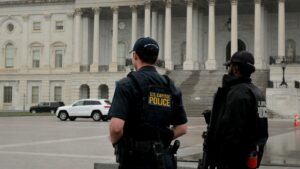Senators Challenge Termination of Legal Aid for Migrant Children
In a significant show of bipartisan unity, two U.S. senators have taken a stance against the cessation of a crucial legal service for migrant children. This move raises pivotal questions about the future of due process for minors caught in immigration proceedings.
Sen. Lisa Murkowski of Alaska, a Republican, has allied with Sen. Jon Ossoff, a Democrat from Georgia, to voice their concerns in a letter sent to Health and Human Services Secretary Robert F. Kennedy Jr. The letter criticizes the decision to terminate a federal contract that offered legal representation to 26,000 unaccompanied children in the United States.
The senators argue that this decision, made in late March, jeopardizes the safety and legal rights of these vulnerable children, putting them at increased risk of trafficking and exploitation. They further caution that the move undermines any chance of a fair legal process for these minors.
Acacia Center for Justice, the organization previously contracted to provide these legal services, offered crucial in-court representation and legal clinics. The termination of this contract has prompted Ossoff and Murkowski to highlight the potential consequences: “Terminating legal representation for these children means that toddlers will now face a courtroom and judge with no adult to advocate on their behalf,” they noted in their letter.
Legal Disputes and Legislative Implications
The cessation of this contract has sparked legal and legislative debates, particularly concerning the Trafficking Victims Protection Reauthorization Act of 2008. According to the senators, this act mandates that the Department of Health and Human Services (HHS) ensures unaccompanied children have legal representation in their proceedings. However, HHS lawyers maintain that the act does not obligate government-funded representation or specific contractual commitments.
In response to lawsuits from several subcontractor groups funded by Acacia, a federal judge issued a temporary restraining order in early April, mandating the continuation of funding until the month’s end. Consequently, the administration has agreed to extend the contract for an additional six months as a temporary measure.
Shaina Aber, executive director of the Acacia Center for Justice, expressed concerns over the uncertainty following the extension. “After the six-month extension, there are a lot of open questions about what protections these vulnerable kids will have,” she stated, emphasizing the necessity for children to understand their rights and have access to independent legal advocacy.
Meanwhile, the Justice Department has also moved to halt funding for other Acacia programs in immigration court, including those aimed at assisting the guardians of unaccompanied children. This decision further complicates the landscape of legal aid available to affected minors, leaving their future representation and protection in flux.






